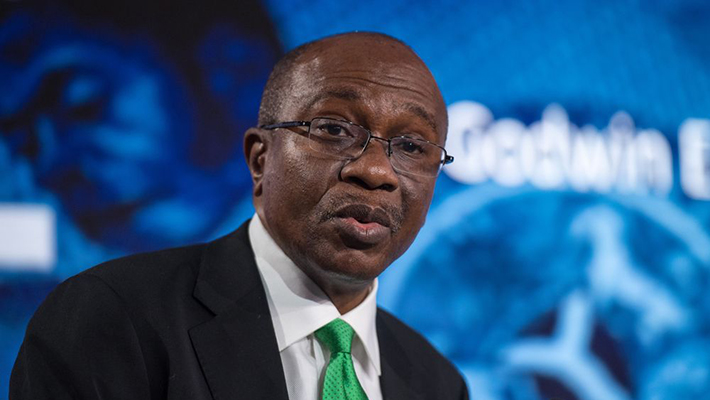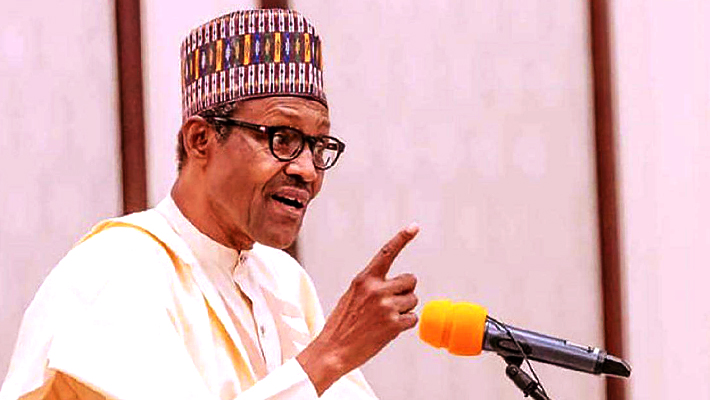President Muhammadu Buhari’s flagship policy has been beset by escalating allegations of incompetence, nepotism and payroll racketeering.
The Central Bank of Nigeria has halted all further disbursements to the Nigeria Incentive-Based Risk Sharing System for Agricultural Lending (NIRSAL), Peoples Gazette can report, amidst widespread allegations of corruption.
The agency’s flagship Anchor Borrowers’ Programme and its chief executive Aliyu Abdulhameed have been rocked by charges of endemic graft in recent months, with multiple officials plugged-in about the crisis telling The Gazette that Mr Abdulhameed has all but run down the flagship commercial agriculture scheme.
The CBN’s suspension of further loans to NIRSAL under Mr Abdulhameed was contained in a March 10 correspondence that referenced a February 24 meeting in which the decision was taken for an immediate pause on all loans. The memo said the decision would only be rescinded after all outstanding loans out of NIRSAL have been resolved.
NIRSAL was also asked to submit monthly reports on its activities to CBN, a decision that indicated a retraction of CBN’s confidence long enjoyed by the credit risk managers.
Officials said the action was a major blow to Mr Abdulhameed, although it would also leave some farmers stranded since NIRSAL would no longer have any loan to disburse or plunder.
“We know it is bad for the Anchor Borrowers’ Programme, but at least we know that there will be no money to steal further,” an official said under anonymity because of his current appointment under the Buhari administration. “The CBN’s action is a welcomed development because NIRSAL has been exposed to a lot of bad debts due to its focus on corruption rather than productivity and development of the agric value chain.”

Anne Ihugba, a spokeswoman for NIRSAL, did not comment on the suspension order from CBN when reached by The Gazette for comments but maintained all claims of corruption undertone were false.
$500 million gamble
Former President Goodluck Jonathan launched NIRSAL in 2013 with a $500 million guarantee to disburse across multiple layers of farming activities. The department, which was launched in collaboration with the federal ministry of agriculture, has been under CBN supervision.
NIRSAL said its mandate is to stimulate the flow of affordable finance and investments into the agricultural sector by de-risking the agriculture and agribusiness finance value chain, fixing agricultural value chains, building long-term capacity, and institutionalising incentives for agricultural lending through strategic areas, including risk-sharing, insurance, technical assistance, incentives and rating.
But the agency’s has been known largely as the main coordinator of the Anchor Borrowers’ Programme, a flagship agric policy institution by the Buhari presidency in November 2015.

NIRSAL grants low-interest agric loans to so-called smallholder farmers who have been identified as key to the trading of agricultural commodities across the country.
The Buhari administration hopes ABP’s farm inputs in finances and farming technical support to small-holder farmers would help boost the country’s agricultural products, especially food and cash crops. NIRSAL remains one of the largest accredited financial institutions or banks currently coordinating loan releases of agric loans granted by CBN to farmers.
In interviews, some Nigerians commended ABP as highly successful in their farming business, saying the suspension of loans through NIRSAL could significantly affect the overall output of the programme.
“It was a programme that helped my family through hard times,” maize farmer Yemi Adewale told The Gazette. “We got it in 2016 and we have been very happy about how it was issued.”
“The programme should not be suspended,” the farmer urged CBN. “NIRSAL’s management may need to be changed if there are issues, but the loans should be allowed to continue because of the raging hardship across the country.”


But officials told The Gazette that Mr Abdulhameed has been using a large chunk of the agency’s $500 million to further his own financial interest.
The Gazette heard how Mr Abdulhameed has been diverting NIRSAL funds to his own pocket by granting loans to fictitious names at the detriment of genuine farmers whom the programme was established to support.
“So many of the loans granted under Anchor Borrowers’ Programme were granted to fake people at the detriment of real farmers struggling to produce and improve the country’s economy,” a source said under anonymity to deflect backlash. “The president introduced this programme because he believes so much in farmers, but Mr Abdulhameed has turned the programme into his cash cow.”
“The $500 million institution is being wrecked now because the president decided to appoint someone that gamble it all away without any benefit to the country in the end,” the source added.
Mounting corruption
Mr Abdulhameed has faced several charges of corruption, including claims he purchased properties abroad. Assets allegedly owned by him in South Africa, Dubai and elsewhere have been published on the Internet.
On March 18, farmers from across the country picketed the headquarters of NIRSAL in Abuja, raising charges that the CEO had plundered loans that should have been issued to them. It was unclear whether or not the decision of the CBN to suspend all loans to NIRSAL was communicated to workers and potential beneficiaries.

Protesters also accused Mr Abdulhameed of payroll racketeering to the tune of N4 billion, saying he has been paying over 500 officials only 50 per cent of their remuneration, siphoning the rest through a conduit.
He also reportedly hired Sekina Adamu, daughter of police inspector-general Mohammed Adamu, for a role in which she had no requisite background. Officials told The Gazette that such appointments are frequent in NIRSAL since Mr Adamu assumed office in 2015.
In December 2019, a petition alleging widespread corruption and nepotism at NIRSAL under Mr Abdulhameed was fired to the Nigerian Senate. Although no action has been taking by the parliament over the matter, the NIRSAL chief has already implemented internal processes to punish perceived enemies within. As part of the vindictive measures, Olalekan Odusanya was eased out as the head of the audit department.
Mr Abdulhameed denied all allegations of corruption and nepotism, saying he had no access to the funds he was being accused of stealing and all those who were employed under him were diverse and competent.
SOURCE: PEOPLES GAZETTE






